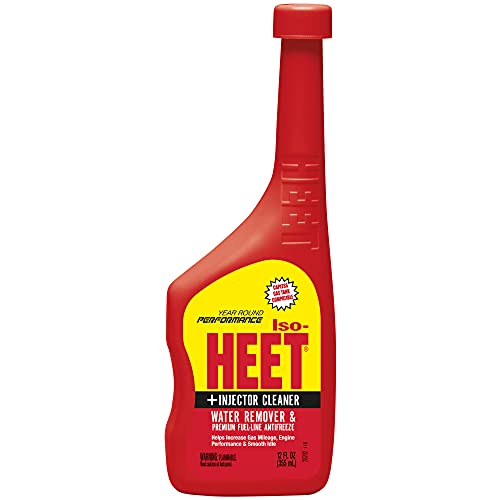Fuel Additives: Everything You Need To Know

- 1. Fuel Additives: Everything You Need To Know
- 1.1. What Are Fuel Additives?
- 1.2. Are Fuel Additives Important?
- 1.3. Different Types of Fuel Additives
- 1.3.1. Fuel Stabilizers
- 1.3.2. Octane Booster
- 1.3.3. Diesel Cetane Booster
- 1.3.4. Fuel-Line Antifreeze
- 1.3.5. Fuel Injector Cleaners
- 1.3.6. Anti-Gel Diesel Additives
- 1.3.7. Ethanol Treatment
- 1.3.8. Gas Treatments
- 1.4. Benefits of Fuel Additives
- 1.4.1. Improved Fuel Efficiency
- 1.4.2. Enhanced Engine Performance
- 1.4.3. Reduced Emissions
- 1.4.4. Extended Engine Life
- 1.5. Factors To Consider Before Choosing Fuel Additives
- 1.5.1. Fuel Type
- 1.5.2. Purpose of Use
- 1.5.3. Manufacturer Reputation
- 1.5.4. Additive Composition
- 1.5.5. Compatibility
- 1.5.6. Vehicle Warranty Considerations
- 1.5.7. Regulatory Compliance
- 1.5.8. Dosage and Mixing
- 1.6. Conclusion
When was the last time you considered the type of fuel you use? Have you ever thought about how to optimize its performance? Your choice of gasoline might be a significant factor in potential engine issues.
Fuel additives offer a means to improve specific aspects of the fuel you use regularly in your vehicle. They can be especially beneficial for older cars, diesel engines, and specific driving conditions. However, navigating through the various types and options can be overwhelming. Given the abundance of choices, distinguishing between additives that enhance and those that may harm your engine can be challenging. In this discussion, we'll delve into what fuel additives are, the different categories available, their functions, and the significance of using fuel additives to maximize fuel efficiency.
What Are Fuel Additives?
Fuel additives are chemical substances that are blended or introduced into fuels to enhance their performance or properties. These additives are designed to improve the quality of the fuel, increase efficiency, and reduce emissions. Fuel additives can be used in various types of fuels, including gasoline, diesel, biodiesel, and aviation fuels. They serve different purposes depending on the specific requirements of the fuel and the engine.
Are Fuel Additives Important?
To maintain a smooth-running engine and fuel lines over the years, fuel additives are crucial. Preventative maintenance, applicable to all vehicles, ensures optimal fuel quality, reducing friction and wear on the engine. This results in fewer hard starts, and even premium gasoline requires preventative measures. Enhancing general engine efficiency is essential, as the EPA notes that conventional vehicles convert only 12-30% of gasoline energy to kinetic energy, with up to 72% inefficiency in the engine. Improving this aspect significantly boosts fuel system efficacy and maximizes fuel utilization.
Different Types of Fuel Additives
Fuel Stabilizers
If you have an idle lawnmower or equipment that sees intermittent use, a fuel stabilizer is essential. It prevents fuel degradation over time, especially in vehicles like boats, RVs, lawnmowers, and generators. By enhancing efficiency, stabilizers prevent gas and water separation during prolonged storage, which can lead to hard starts and engine corrosion.
Octane Booster
Previously, tetraethyl lead was used to increase octane levels in gasoline, but due to health concerns, it was discontinued. High-octane gasoline is associated with increased power, as it raises the compression ratio, leading to a more potent explosion during ignition. While modern engines are designed for specific octane levels, older cars with high-compression engines and certain premium vehicles may benefit from octane boosters.
Diesel Cetane Booster
In diesel engines, a cetane booster increases power by promoting quicker ignition and efficient fuel usage. Different vehicles require varying cetane levels, and since many areas lack optimal levels, an additive can enhance fuel efficiency and performance.
Fuel-Line Antifreeze
To prevent condensation in fuel tanks from freezing, especially in cold weather, fuel-line antifreeze is crucial. It can be alcohol-based or use water dispersants to absorb water in the fuel, preventing frozen condensation. This is particularly beneficial for vehicles using gasoline without added ethanol, especially diesel engines, in fluctuating freezing and thawing conditions.
Fuel Injector Cleaners
Fuel injector cleaners are essential for maintaining a clog-free system, ensuring optimal combustion. They prevent issues like stuttering, misfiring, and reduced performance caused by clogged injectors. Some additives also remove existing carbon deposits, improving engine efficiency and reducing emissions.
Anti-Gel Diesel Additives
Cold weather can cause diesel fuel to form crystallized wax particles, leading to clogged lines and filters. Anti-gel diesel additives prevent gelling by lowering the fuel's freezing point, improving engine performance in cold temperatures.
Ethanol Treatment
Despite the widespread use of ethanol in gasoline for environmental reasons, it has drawbacks, such as water absorption and deposit buildup. Ethanol treatment additives stabilize the gas, preventing separation, and help keep the engine clean, making them particularly beneficial for ethanol fuels.
Gas Treatments
Comprehensive gas treatments address various performance aspects and preventative maintenance. They can remove and prevent carbon deposits, clean parts with detergents, and stabilize fuel. Gas treatments serve as effective preventative maintenance solutions, and some can be combined with specialized additives like octane boosters for optimal results.
Benefits of Fuel Additives
Improved Fuel Efficiency
Octane boosters and cetane improvers optimize combustion, leading to increased fuel efficiency. This can result in better mileage and cost savings for vehicle owners.
Enhanced Engine Performance
Fuel additives, especially those designed to clean fuel systems, contribute to smoother engine operation and improved power delivery. This is particularly noticeable in older vehicles or those with significant mileage.
Reduced Emissions
Cleaner combustion facilitated by fuel additives translates to lower emissions of pollutants such as carbon monoxide and hydrocarbons. This aligns with global efforts to reduce the environmental impact of transportation.
Extended Engine Life
By preventing deposit buildup and reducing wear and tear on engine components, fuel additives can contribute to the longevity of an engine.
Factors To Consider Before Choosing Fuel Additives
Selecting the appropriate fuel additives is crucial to enhance the performance and efficiency of your vehicle or machinery. Before choosing fuel additives, take into account the following factors:
Fuel Type
Ensure that the fuel additive is compatible with the type of fuel you use (gasoline, diesel, ethanol, etc.). Some additives are specifically designed for certain fuel types.
Purpose of Use
Identify the specific goal you want to achieve with the fuel additive. Whether it's improving fuel efficiency, cleaning the fuel system, preventing corrosion, or boosting octane levels, different additives cater to different needs.
Manufacturer Reputation
Choose products from reputable manufacturers with a track record of producing reliable and effective fuel additives. Look for reviews, testimonials, and industry certifications to gauge the reputation of the manufacturer.
Additive Composition
Examine the composition of the fuel additive. Some additives contain detergents, antioxidants, corrosion inhibitors, lubricity agents, cetane or octane boosters, and more. Ensure that the composition aligns with your specific requirements.
Compatibility
Check if the fuel additive is compatible with your vehicle's engine and fuel system components. Incompatibility could lead to adverse effects on engine performance or even damage.
Vehicle Warranty Considerations
Verify whether the use of a particular fuel additive will void your vehicle's warranty. Some manufacturers may not honor warranties if non-approved additives are used.
Regulatory Compliance
Ensure that the fuel additive complies with local and national regulations. Certain jurisdictions may have restrictions on the use of certain additives.
Dosage and Mixing
Understand the recommended dosage and the method of mixing the fuel additive with the fuel. Using the correct concentration is crucial to achieving the desired results without causing harm.
Conclusion
Fuel additives play a crucial role in maximizing engine performance, improving fuel efficiency, and promoting cleaner emissions. Nevertheless, vehicle owners should exercise caution when using them, ensuring compatibility and adhering to recommended doses. With ongoing advancements in automotive technology, fuel additives are expected to undergo further development, providing increasingly sophisticated solutions to keep pace with the rapidly evolving industry demands.











